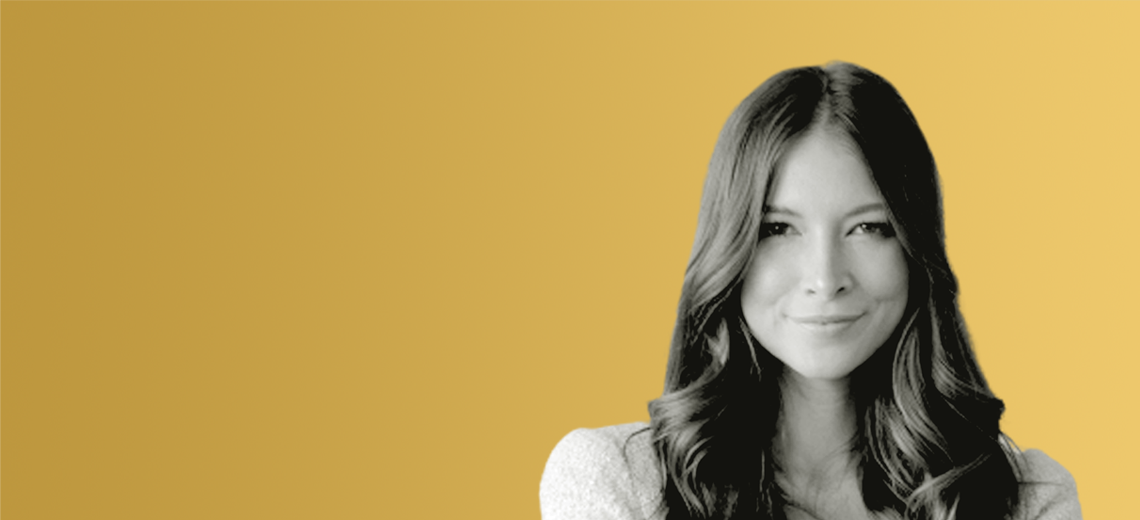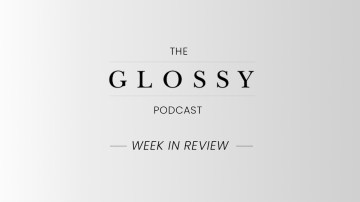This is an episode of the Glossy Beauty Podcast, which features candid conversations about how today’s trends are shaping the future of the beauty and wellness industries. More from the series →
Subscribe: Apple Podcasts | Stitcher | Google | Spotify
When you reach for a bottle of shampoo in the shower, you may not be familiar with the brand founder — or know if he or she actually uses the product. But as Crown Affair founder and CEO Dianna Cohen tells it, her hair-care line was launched as an extension of her own routine and the products that she recommended to her friends.
She wanted to create a brand that fit within the “luxury world” of products she gravitated toward, said Cohen on the most recent episode of Glossy Beauty Podcast. “[With those products,] when you held the tool or used the product, it brought you joy. And it felt like a part of who you were.”
Crown Affair’s line includes scrunchies, hair oils, towels and combs, and aims to transform the health of customers’ hair. This month, Crown Affair is venturing into tried-and-true hair must-haves, like shampoo and conditioner. And next year, it will launch in a national retailer. But above all, the brand, which remains digitally-focused, prides itself on its focus on community. “Our customer and community is the woman who is super dynamic. And she does care about her hair, but she has a lot of other things going on in her life,” she said.
The Crown Affair community is made up of its loyal customers and even non-customers, who learned about the brand by word-of-mouth. It also includes the 100 women who make up Seedling, the brand’s mentorship development program.
“If you’re thinking about launching a brand into the world, one of the most powerful things that you can do is build a community,” she said.
“That’s [an] important lens as a founder, to [think], ‘How are you shopping for other things?’ ‘How are you finding out about products?’” said Cohen. “The only way to build authentic relationships is by taking time to build authentic relationships.”
Below are additional highlights from the conversation, which have been lightly edited for clarity.
The power of rituals
“I’m consistent with my rituals. I’m someone who wakes up every morning and journals three pages [via] stream of consciousness writing. I have to stretch every day. I’m not a huge activity workout person, but for me, moving my body and feeling connected to it is super important. Meditation is something that I have practiced for years now… The beauty of this is that every ritual I have isn’t about perfection, it is about consistency. And when you do something for years, you do see the change over time… [It’s about being] consistent versus trying to do something that will fix you immediately, like a crash diet, or something that’s going to repair your hair overnight. The whole concept is around taking your time — [that’s] where the brand started before we had products. And [it was about] connecting with women who felt similarly.”
Resilience and flexibility during the pandemic
“On one hand, this time has allowed us all to be super-mindful about the choices that we make, in terms of hiring, the culture that you’re building — all of these things that I knew I wanted, coming from these other companies [I’ve worked for]. I’ve actually had the space to execute on that. You can talk to anyone on our team, and I know how proud and excited they are to be building this together. And part of that is in our DNA and how we show up for work every day. Also, being resilient is the only thing you can be. You could have a launch next week, and the world might actually fall apart [before then]. And that is way more important than anything that you’re launching into the world. I remember, even early in my startup days, my team members would [say], ‘You never set up your desk,’ ‘You don’t have things at your desk,’ ‘You don’t settle.’ [I’ve] always been on the go with a laptop. You make things happen, and you have to be resilient.”
The truth about community
“Beauty as a category, in particular, is such a word-of-mouth-driven universe. If my friend loves a product and recommends it to me or says, ‘This changed my skin,’ or, ‘You [should] try it,’ it feels much more real than seeing an ad in the middle of your feed or in a sponsored post. There are many more nuanced ways to work with influencers and pay them for content creation and for storytelling… I’d rather take the time to talk to people about their hair. And that’s where this started. It was me talking to my girlfriends about hair, and it’s such a huge part of your identity and well-being. Being supportive [of people] on [their] journey, whether you have a product to offer them or not, is a huge part of community building. It’s been meaningful to us, though it’s definitely harder to measure. But the long-term upside is much higher. We’re not a Gen Z or TikTok brand today… We’re building something much more powerful.”




